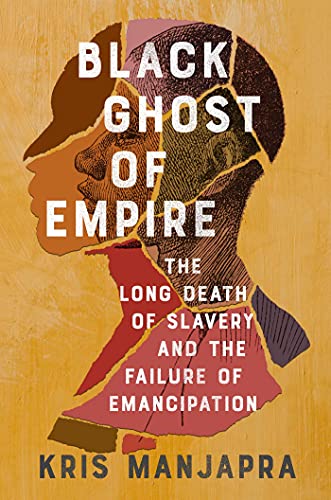
Black Ghost of Empire: The Long Death of Slavery and the Failure of Emancipation PDF
256 Pages·2022·16.2747 MB·other
Most books are stored in the elastic cloud where traffic is expensive. For this reason, we have a limit on daily download.
Preview Black Ghost of Empire: The Long Death of Slavery and the Failure of Emancipation
Description:
The 1619 Project illuminated the ways in which every aspect of life in the United States was and is shaped by the existence of slavery. Black Ghost of Empire focuses on emancipation and how this opportunity to make right further codified the racial caste system—instead of obliterating it. To understand why the shadow of slavery still haunts society today, we must not only look at what slavery was, but also the unfinished way it ended. One may think of “emancipation” as a finale, leading to a new age of human rights and universal freedoms. But in reality, emancipations everywhere were incomplete. In Black Ghost of Empire, acclaimed historian and professor Kris Manjapra identifies five types of emancipation—explaining them in chronological order—along with the lasting impact these transitions had on formerly enslaved groups around the Atlantic. Beginning in 1770s and concluding in 1880s, different kinds of emancipation processes took place across the Atlantic world. These included the Gradual Emancipations of North America, the Revolutionary Emancipation of Haiti, the Compensated Emancipations of European overseas empires, the War Emancipation of the American South, and the Conquest Emancipations that swept across Sub-Saharan Africa. Tragically, despite a century of abolitions and emancipations, systems of social bondage persisted and reconfigured. We still live with these unfinished endings today. In practice, all the slavery emancipations that have ever taken place reenacted racial violence against Black communities, and reaffirmed commitment to white supremacy. The devil lurked in the details of the five emancipation processes, none of which required atonement for wrongs committed, or restorative justice for the people harmed. Manjapra shows how, amidst this unfinished history, grassroots Black organizers and activists have become custodians of collective recovery and remedy; not only for our present, but also for our relationship with the past. Timely, lucid, and crucial to our understanding of the ongoing “anti-mattering” of Black people, Black Ghost of Empire shines a light into the deep gap between the idea of slavery’s end and its actual perpetuation in various forms—exposing the shadows that linger to this day.
See more
The list of books you might like
Most books are stored in the elastic cloud where traffic is expensive. For this reason, we have a limit on daily download.
